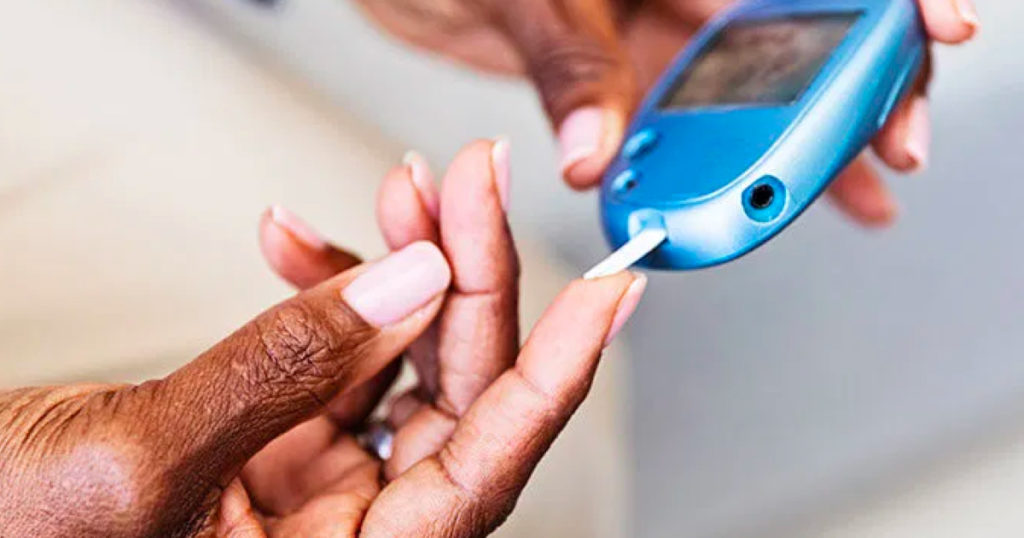Summary
- Obstructive sleep apnea is a sleep disorder in which normal sleeping patterns are disturbed. The airway collapse is what causes breathing to become irregular or temporarily stop.
- OSA is treated with continuous positive airway pressure (CPAP) – a device with a patient’s mask and tube.
- Type 2 diabetes is a chronic condition, which is increasing worldwide.
- If you have sleep apnea and diabetes together, it will be more difficult for you to manage diabetes.
- Lack of sleep results in a lack of motivation to exercise and reduces focus.
- Treating sleep apnea with CPAP not only helps patients with their sleep; it also improves blood glucose levels.
- Previous studies have reported that patients with OSA are more prone to developing type 2 diabetes, despite their age and body mass index (BMI).
Are you continuously reminded by your partner to stop snoring? Do you wake up breathless several times at night? You might be suffering from a condition called Obstructive sleep apnea (OSA). Alongside this, if you have diabetes, managing OSA is critical.
The National Institutes of Health recently stated that about 18 million people suffer from sleep apnea, with as much as 80 percent remain undiagnosed. [1]
What Is Sleep Apnea?
Obstructive sleep apnea is a sleep disorder in which normal sleeping patterns are disturbed. The collapse in the airway causes breathing to become irregular or temporarily stop. OSA is treated with continuous positive airway pressure (CPAP) – a device with a mask and tube used by sleep disorder patients. Air is forced into the patient’s lungs, keeping the airway open. OSA is a treatable disorder common among obese and overweight individuals. [2]
What Is Type 2 Diabetes?
Type 2 diabetes is a chronic condition in which blood glucose levels are abnormally regulated. The prevalence of diabetes is increasing worldwide. Key factors contributing to type 2 diabetes are obesity and poor lifestyle habits such as inactivity, sedentary lifestyle, overeating, etc. Although there are established interventions like pharmacological agents, the fiscal and communal health burden of type 2 diabetes is significant.
How Does Sleep Apnea Affect Diabetes?
If you are suffering from sleep apnea and diabetes together, it will be very challenging to manage your diabetes. This occurs due to an increased carbon dioxide level in blood due to intermittent breathing and leads to:
- High insulin resistance, meaning that your body cannot use insulin effectively, resulting in elevated blood sugar levels.
- Long term increased blood pressure.
- Greater risk of heart disease
- Frequent headaches, particularly in the morning
Compromised sleep results and lack of motivation to exercise leads to a reduced focus on work. As a result, irritability and mood swings are common among such patients. It may lead to poor relationships with friends, family, and coworkers. Due to drowsiness and lethargy, patients often tend to forget anti-diabetics, which further aggravates their condition. [3]
Can CPAP Help Diabetes?
Treating sleep apnea with continuous positive airway pressure (CPAP) helps patients sleep and improves blood glucose levels. This decreases the risk of developing complications associated with diabetes, such as heart disease and kidney malfunction.
Previous studies have reported that patients with OSA are more prone to developing type 2 diabetes, despite their age and body mass index (BMI). +
A study published in the Archives of Internal Medicine investigated the treatment effects of sleep apnea with continuous positive airway pressure (CPAP) on blood glucose levels in a group of 25 patients with type 2 diabetes. Each patient was treated for at least four hours every night for three months. According to the results, sleep apnea treatment significantly reduced blood sugar levels. [5]
Bottomline
With supporting scientific evidence that sleep apnea is closely associated with type 2 diabetics, it is imperative to keep your sleep apnea in check. Patients can now control their sleep disorders and sugar levels with CPAP treatment.
If you have diabetes, you’re likely to suffer from sleep apnea. This may end up worsening your diabetes and putting you at an increased risk of associated medical complications. Thus, it is essential to get a proper diagnosis and follow your physician’s prescribed treatment plan to prevent further complications.
References:
- Jean-Louis G, von Gizycki H, Zizi F, Dharawat A, Lazar JM, Brown CD. Evaluation of sleep apnea in a sample of black patients. J Clin Sleep Med. 2008;4(5):421-425. https://www.ncbi.nlm.nih.gov/pmc/articles/PMC2576327/
- Espanol L. Sleep apnea. https://www.nhlbi.nih.gov/health-topics/sleep-apnea
- Harris A & Cotey S. Sleep Apnea Can Make Managing Diabetes More Difficult: What You Need To Know. Health Essentials. https://health.clevelandclinic.org/sleep-apnea-can-make-managing-diabetes-more-difficult-what-you-need-to-know/
- Muraki I, Wada H, Tanigawa T. Sleep apnea and type 2 diabetes. J Diabetes Investig. 2018;9(5):991-997. DOI:10.1111/JDI.12823. https://www.ncbi.nlm.nih.gov/pmc/articles/PMC6123041/
- Babu AR, Herdegen J, Fogelfeld L, Shott S, Mazzone T. Type 2 diabetes, glycemic control, and continuous positive airway pressure in obstructive sleep apnea. Arch Intern, Med. 2005;165(4):447-452. DOI:10.1001/architect.165.4.447. https://pubmed.ncbi.nlm.nih.gov/15738376/


